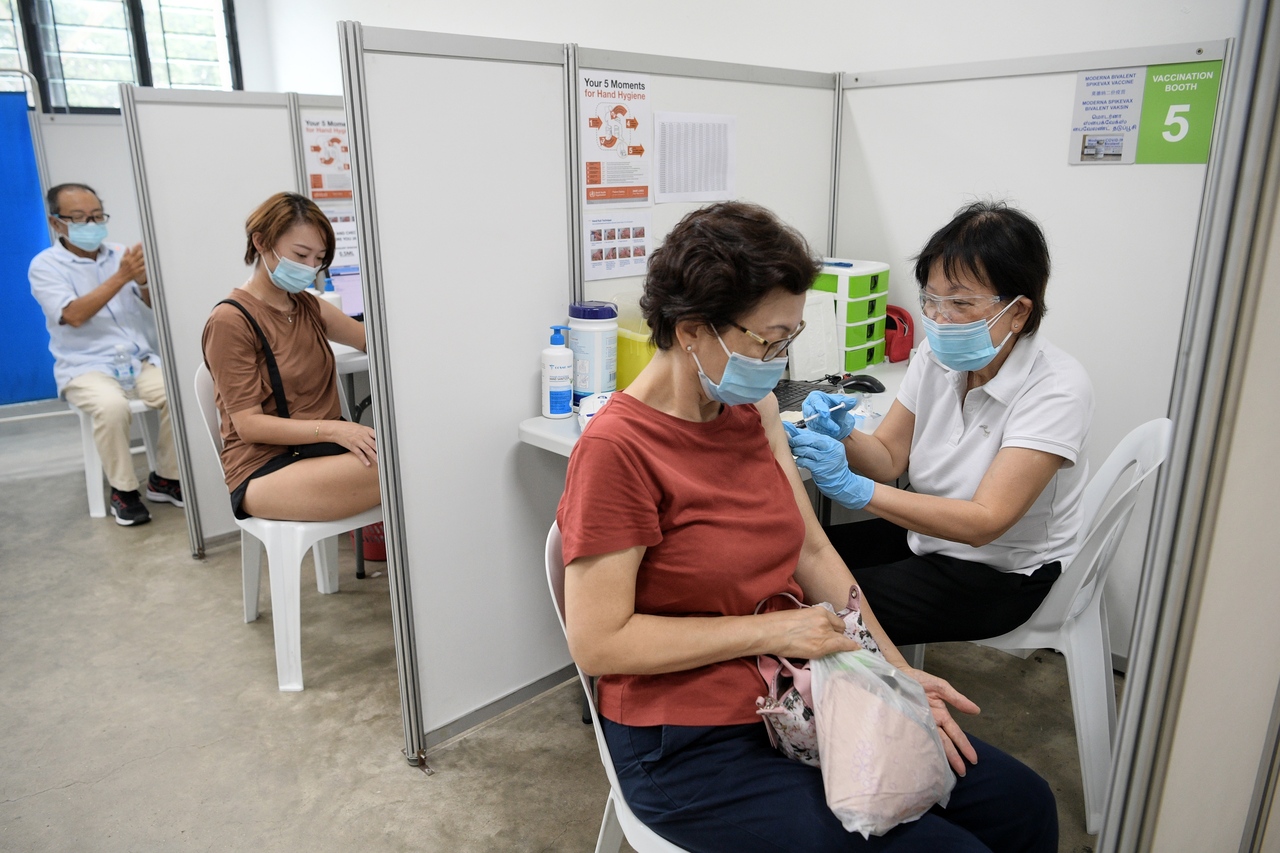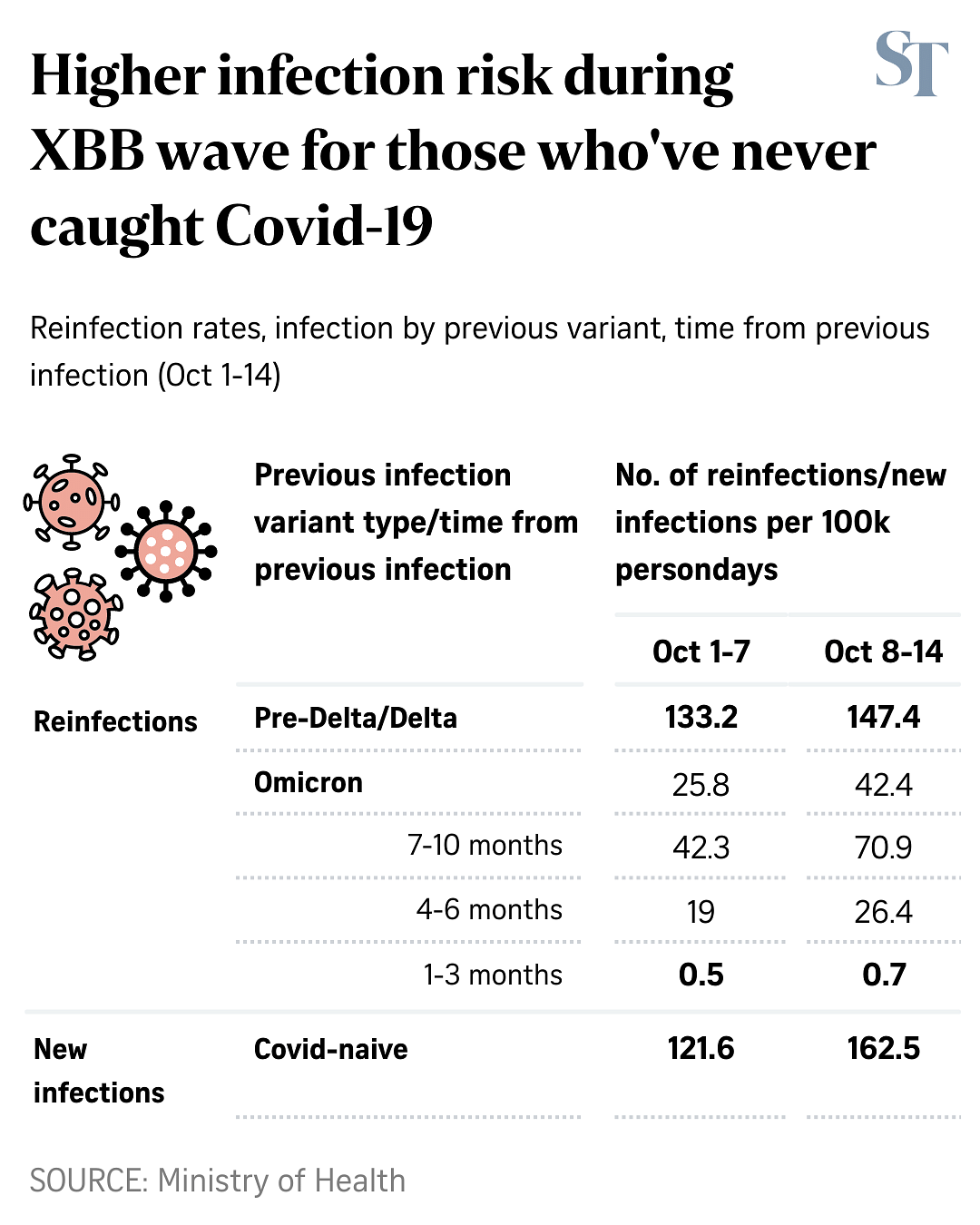Higher risk of infection during XBB wave for those who've never caught Covid-19
Sign up now: Get ST's newsletters delivered to your inbox

The risk of being infected with the new XBB strain is almost the same for a Covid-naive person and for those who were infected last October or earlier.
ST PHOTO: NG SOR LUAN
SINGAPORE - People who have never caught Covid-19 or who were infected with the virus before the Delta wave in Singapore in 2021 face a higher chance of catching the new XBB strain of the Omicron variant.
Ministry of Health (MOH) figures show that the incidence rate for those who have never been infected with Covid-19, otherwise known as Covid-naive patients, is higher than for other groups.
The incidence rate of Covid-naive patients was 162.5 infections per 100,000 person-days between Oct 8 and Oct 14.
In comparison, the incidence rate of those who were previously infected with Covid-19 before or during the Delta wave in Singapore was 147.4 infections per 100,000 person-days.
The Delta wave hit its peak between October and November in 2021.
The incidence rate was even lower for those who caught Covid-19 a month to three months ago.
Health Minister Ong Ye Kung said figures show that it was 0.7 infection per 100,000 person-days, which suggests that the probability of reinfection for this group is very low.
"We hear stories of someone getting it one month, and then next month again - those are very rare," said Mr Ong, who was speaking during a briefing by the Covid-19 multi-ministry task force.
"But if you got your infection four to six months ago, or seven to 10 months ago, the probability (of reinfections) goes up.
"But it is still significantly lower than a Covid-naive person," said Mr Ong.
MOH figures also show that the incidence rate for those who caught Covid-19 between four and six months ago was 26.4 infections per 100,000 person-days.
For those who were infected between seven and 10 months ago, it was 70.9 infections per 100,000 person-days.
Mr Ong said the risk of being infected with the XBB strain is almost the same for a Covid-naive person and for those who were infected last October or earlier.
"Protection of an infection and a vaccine does not last forever. It lasts about a year, according to this data," said Mr Ong, who added that this is based on current strains circulating.



